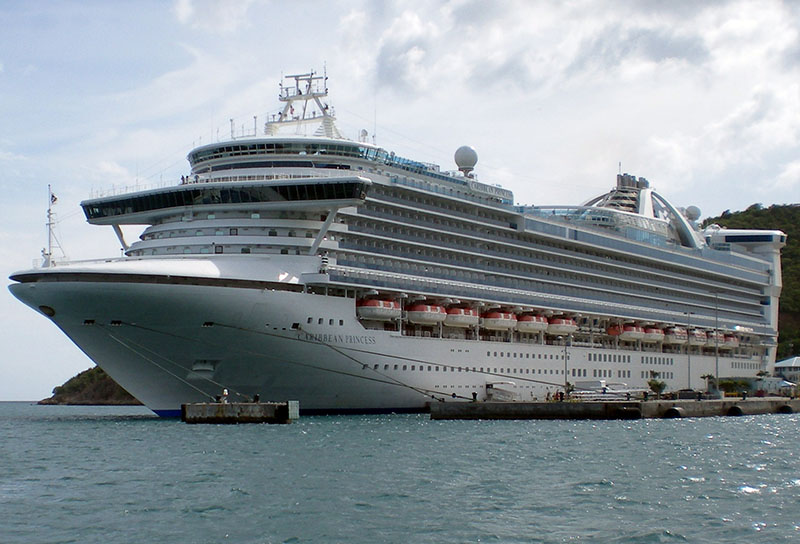(Bloomberg) — Carnival Corp.’s cruise ships face tough U.S. scrutiny for five years after one of its units admitted illegally dumping waste at sea and agreed to pay a $40 million fine — the largest-ever criminal penalty related to deliberate pollution from a vessel, according to the U.S. Department of Justice.
Acting on a tip from a whistle-blower, U.K. officials notified the U.S. Coast Guard that an engineer aboard Princess Cruise Lines’ Caribbean Princess reported in 2013 that the vessel used a so-called magic pipe to dump oily waste off the coast of England. U.S. investigators later found other crew members sought to cover up the incident, according the DOJ.
“The pollution in this case was the result of more than just bad actors on one ship,” Assistant Attorney General John Cruden said in a statement. “It reflects very poorly on Princess’s culture and management. This is a company that knew better and should have done better.”
As part of the deal, cruise ships from eight Carnival companies, including its Holland America Line, will face five years of court supervision to insure compliance with environmental standards, Cruden said.
“We are extremely disappointed about the inexcusable actions of our employees who violated our policies and environmental law” through the illegal dumping, Roger Frizzell, a Carnival spokesman, said in an e-mailed statement. “We are very sorry that this happened and have taken additional steps to ensure we meet or exceed all environmental requirements.”
The “magic pipe” was used to bypass an oily water separator and oil content monitor, required pollution-monitoring technology, according to the DOJ.
The whistle-blowing engineer quit when the ship reached Southampton, England, prosecutors said. Investigators later found that the ship’s chief engineer and senior first engineer ordered a cover-up, including the removal of the discharge pipe. They also told other crew members to lie about the incident, the DOJ said. The probe uncovered four other Princess ships used similar techniques to avoid systems designed to monitor oil pollution from cruise liners, prosecutors said.
The illegal dumping allowed the ship to avoid costs of properly disposing of the waste at ports, Cruden said. Prosecutors asked a judge to allow the use of $10 million of the $40 million penalty on projects designed to “benefit the maritime environment.”
Carnival Corp. reported third-quarter earnings in September that beat analysts’ estimates, helped by strong sales for cruise-line operator’s North American and European brands as well as deployments in the Caribbean.
The case is U.S. v. Princess Cruise Lines Ltd., 16-cr-20897, U.S. District Court, Southern District of Florida (Miami).
Bloomberg News by Jef Feeley




